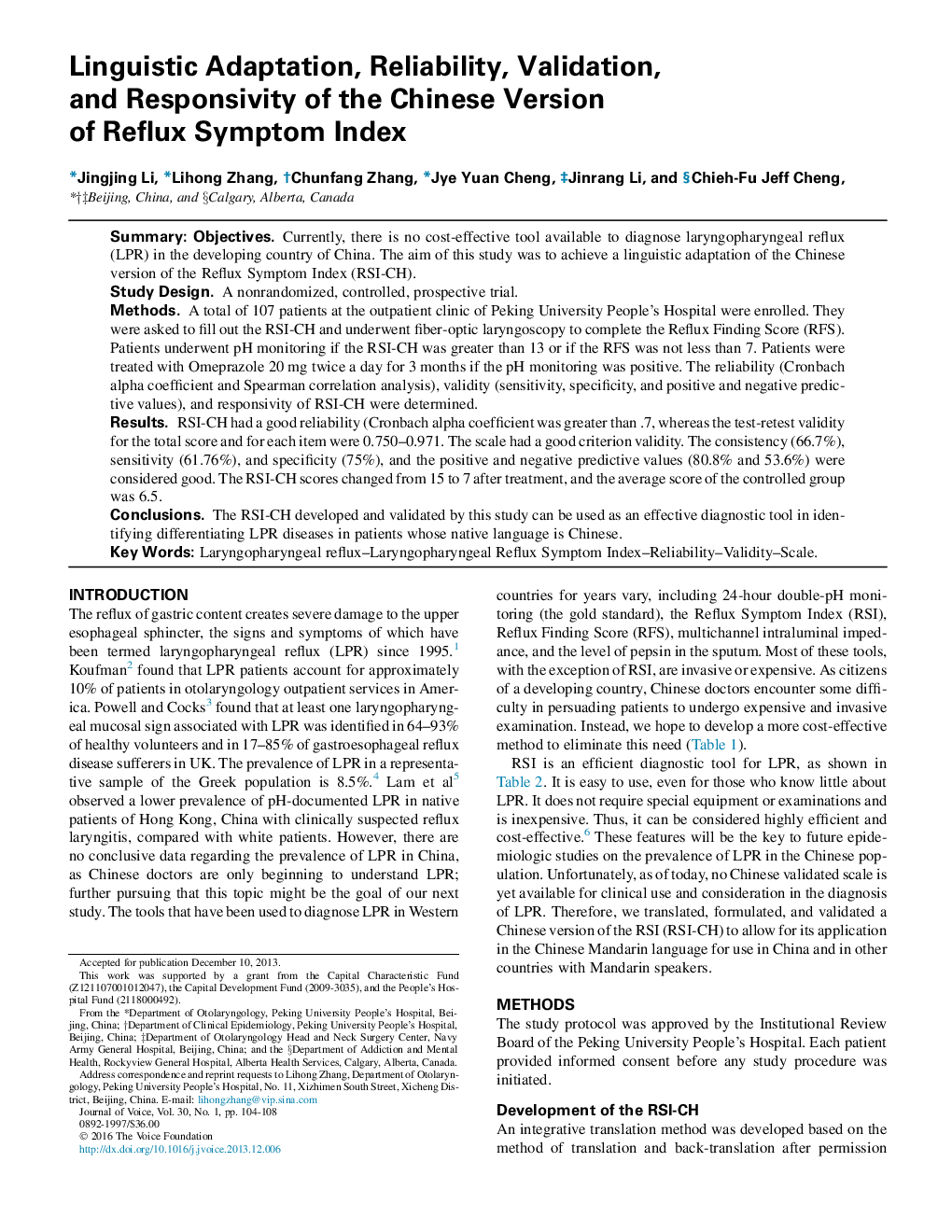| Article ID | Journal | Published Year | Pages | File Type |
|---|---|---|---|---|
| 1101255 | Journal of Voice | 2016 | 5 Pages |
SummaryObjectivesCurrently, there is no cost-effective tool available to diagnose laryngopharyngeal reflux (LPR) in the developing country of China. The aim of this study was to achieve a linguistic adaptation of the Chinese version of the Reflux Symptom Index (RSI-CH).Study DesignA nonrandomized, controlled, prospective trial.MethodsA total of 107 patients at the outpatient clinic of Peking University People's Hospital were enrolled. They were asked to fill out the RSI-CH and underwent fiber-optic laryngoscopy to complete the Reflux Finding Score (RFS). Patients underwent pH monitoring if the RSI-CH was greater than 13 or if the RFS was not less than 7. Patients were treated with Omeprazole 20 mg twice a day for 3 months if the pH monitoring was positive. The reliability (Cronbach alpha coefficient and Spearman correlation analysis), validity (sensitivity, specificity, and positive and negative predictive values), and responsivity of RSI-CH were determined.ResultsRSI-CH had a good reliability (Cronbach alpha coefficient was greater than .7, whereas the test-retest validity for the total score and for each item were 0.750–0.971. The scale had a good criterion validity. The consistency (66.7%), sensitivity (61.76%), and specificity (75%), and the positive and negative predictive values (80.8% and 53.6%) were considered good. The RSI-CH scores changed from 15 to 7 after treatment, and the average score of the controlled group was 6.5.ConclusionsThe RSI-CH developed and validated by this study can be used as an effective diagnostic tool in identifying differentiating LPR diseases in patients whose native language is Chinese.
